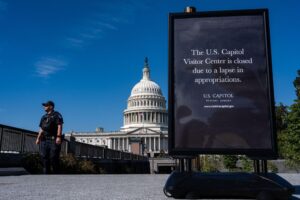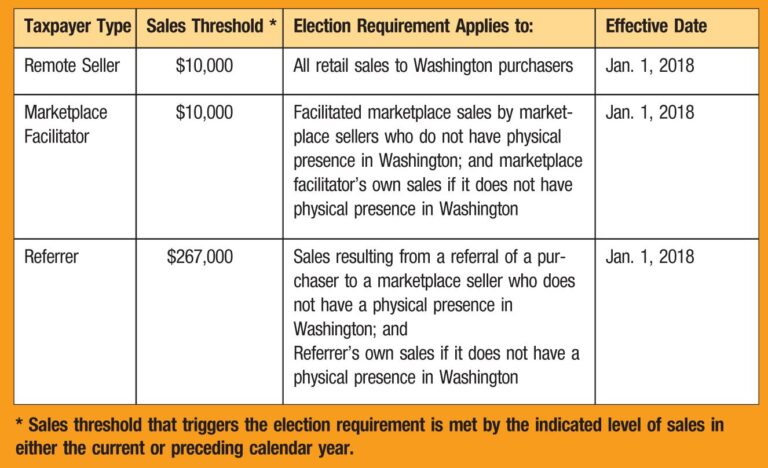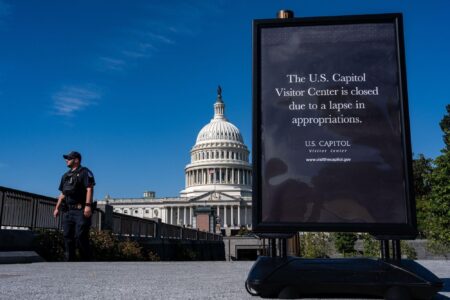Decoding Washington State’s B&O Tax Nexus: Essential Insights for Multistate Businesses
Understanding the Intricacies of Washington’s B&O Tax Nexus
Washington State’s Business and Occupation (B&O) tax system presents a uniquely challenging environment for companies conducting business both within and beyond its borders. Unlike conventional sales tax frameworks, Washington’s B&O tax hinges on gross receipts generated from business activities inside the state, rather than solely on physical presence. This economic nexus approach, combined with a variety of thresholds and classifications, often catches multistate enterprises off guard, especially as the state intensifies enforcement efforts.
Key elements that complicate Washington’s B&O nexus include:
- Economic thresholds: Businesses with annual sales exceeding $100,000 in Washington are subject to B&O tax, regardless of whether they maintain a physical location in the state.
- Classification diversity: Different categories of goods and services are taxed at varying rates, requiring precise categorization and reporting.
- Physical presence triggers: The presence of employees, leased equipment, or inventory stored within Washington can establish nexus.
Given these factors, companies must implement detailed tracking systems and adapt their tax strategies to remain compliant. The table below summarizes the primary nexus triggers and their tax implications for businesses operating across state lines:
| Nexus Trigger | Definition | Tax Consequence |
|---|---|---|
| Economic Presence | Annual sales exceeding $100,000 in Washington | Liability for B&O tax on all taxable gross receipts |
| Physical Presence | Employees, leased property, or inventory located in Washington | Establishes comprehensive nexus for tax purposes |
| Third-Party Agents | Independent contractors or sales representatives operating in the state | Potential nexus creation depending on activities |
Commonly Missed Nexus Triggers That Can Lead to Unexpected Tax Exposure
Many businesses underestimate how seemingly minor activities can inadvertently create a tax nexus in Washington. For instance, remote sales to Washington customers, digital marketing campaigns targeting the state, or participation in trade shows can all establish taxable connections. Even without a physical office or direct employees, these interactions may fulfill nexus criteria under Washington’s broad standards.
Additional overlooked triggers include:
- Inventory stored at third-party fulfillment centers: Using services like FedEx Fulfillment or regional warehouses can create a physical presence nexus.
- Business conducted by sole proprietors or partnerships: These entities may be subject to B&O tax if they engage in activities within the state.
- Leasing tangible personal property: Equipment or vehicles leased in Washington can establish nexus.
| Trigger | Illustrative Example | Tax Implication |
|---|---|---|
| Remote Sales | Online orders shipped to Washington residents | Gross receipts subject to B&O tax |
| Third-Party Warehousing | Inventory stored at a regional fulfillment center | Creates physical nexus, triggering tax obligations |
| Independent Contractors | Consultants or sales agents operating in Washington | May establish nexus depending on activity scope |
Proactive Strategies to Navigate and Minimize B&O Tax Risks
Effectively managing Washington’s B&O tax responsibilities requires a comprehensive and proactive approach. Businesses should conduct regular nexus evaluations, scrutinizing both physical and economic presence against the state’s evolving criteria. Leveraging advanced analytics and real-time monitoring tools can help detect changes in sales patterns or operational footprints that might trigger tax liabilities.
Key compliance tactics include:
- Implementing dynamic nexus tracking: Systems that update automatically with legislative changes ensure ongoing compliance.
- Cross-functional audits: Coordinated reviews involving finance, sales, and legal teams help uncover hidden tax risks.
- Scenario planning: Modeling different business scenarios to anticipate potential tax impacts and prepare accordingly.
| Risk Factor | Recommended Mitigation | Expected Benefit |
|---|---|---|
| Sudden Increase in Sales Volume | Set automated alerts for sales thresholds | Timely recognition of tax obligations |
| Remote Workforce in Washington | Quarterly nexus assessments | Reduced risk of audits and penalties |
| Use of Third-Party Delivery Services | Regular mapping of delivery routes and hubs | Accurate identification of tax jurisdictions |
Expert Guidance for Mastering Washington’s B&O Tax Requirements
Washington’s B&O tax system is complex and frequently updated, making expert advice invaluable. Tax professionals stress the importance of continuous nexus monitoring and meticulous record-keeping to identify when thresholds are met—whether through sales, property, or employee presence. Prompt registration with the Washington Department of Revenue and adherence to filing requirements are critical to avoid penalties.
To enhance compliance, experts recommend:
- Automating integration of sales and payroll data: Ensures accurate nexus determination and reporting.
- Conducting regular internal audits: Helps detect and correct misclassifications or omissions.
- Consulting Washington-specific tax advisors: Provides tailored strategies for apportionment, exemptions, and credits.
| Common Nexus Trigger | Threshold | Recommended Response |
|---|---|---|
| Sales Revenue | $100,000 annually | Register for B&O tax and file returns promptly |
| Property Ownership or Lease | Any owned or leased tangible property | Declare property and remit applicable taxes |
| Employee Presence | One or more employees working in Washington | Establish nexus and update payroll withholdings |
Conclusion: Staying Ahead in Washington’s Evolving Tax Environment
As Washington State continues to refine its tax nexus regulations, businesses must stay alert to avoid unforeseen tax liabilities. The complexities outlined in recent analyses underscore that routine business activities can unexpectedly trigger significant tax responsibilities. By adopting proactive compliance strategies and seeking expert counsel, companies can safeguard against costly errors and ensure smooth operations within Washington’s taxing jurisdiction. Staying informed and agile is key to thriving in the Evergreen State’s dynamic tax landscape.







